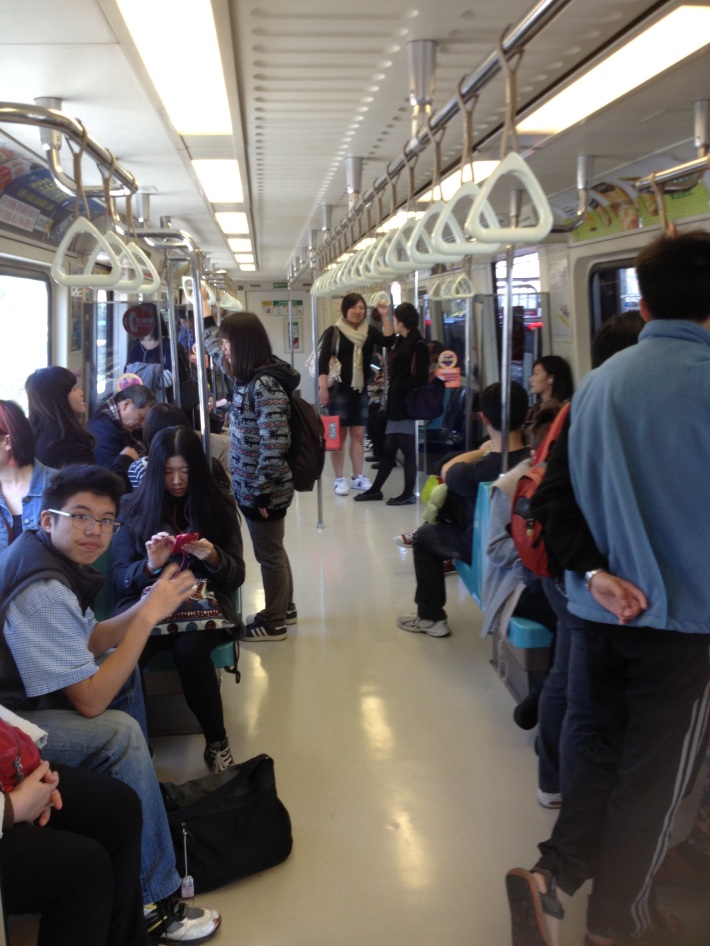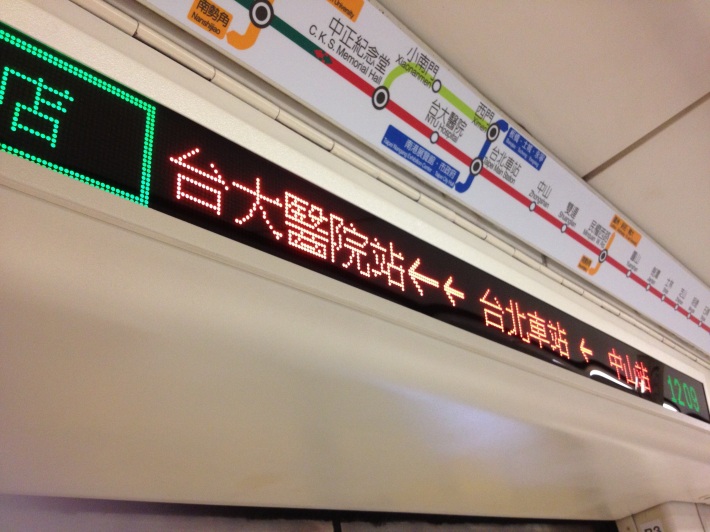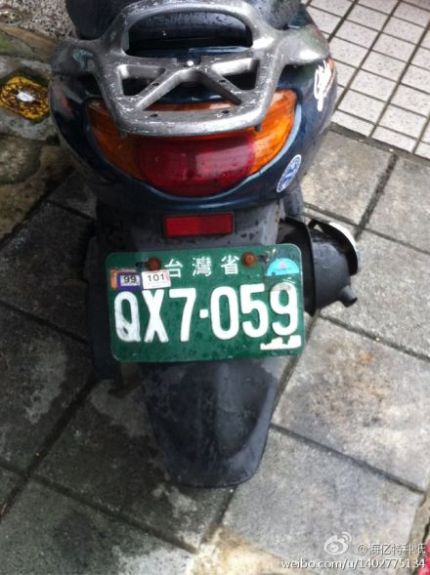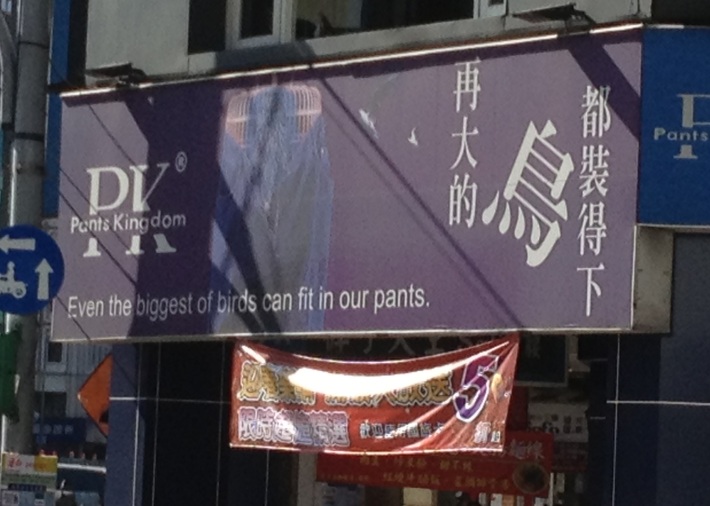#01 Kaohsiung
Such a beautiful city, Kaohsiung. After 1.5 years, I finally return to the place I once missed so much.
I went back, spent 6 wonderful days there. I wonder why Kaohsiung has such a special place in my heart. It’s as though that city was the reason why I went to Taiwan in the first place. I mean, Taipei is awesome, full of activities and very happening. Very convenient. But somehow the stillness, the vastness of space, the lack of activity and honestly, the charm of the entire city speaks to me in a way like no other city. Kaohsiung is special. It is.
Kaohsiung is a place that was supposed to be the Taipei today. When Formosa (now known as Taiwan) was formed in the early days, the people who fled mainland entered Taiwan and settled at Kaohsiung. It was the centre of activity then, until in recent years where Taipei was chosen by the Kuomintang as the city and there congregated commerce and trade. Believe it or not, Taipei was once a sleepy city, but due to political reasons, it became the focal point of contact between Taiwan and the outside world. Even the Olympic team is known as Chinese Taipei.
By definition Kaohsiung is much better equipped to be the capital, because the climate is better (nearer to the equator, more consistent weather all year round), and has much bigger space than Taipei. But because of political happenings, Taipei eventually became much more developed and now its almost impossible for Kaohsiung to catch up, as long as the Taiwanese government remains. Many Taiwanese would rather not travel up north to Taipei if not for the fact that the employment opportunities are simply better there. Of course everything in Taipei is more expensive as well.
To me, personally, I will make a point to return to Kaohsiung as often as I financially can. Because that place means so much to me. I just love everything there. The people, the space, the lack of people, the vastness of space. And there is always someone, something there that means something to me. I can’t really articulate properly why Kaohsiung is so special. There’re too many intangibles involved, but I guess above mentioned are the main reasons for now.
#02: Taiwanese Independence.
To give you a primer, basically Taiwan was original part of the older China, until two political parties, Kuomintang (KMT) and the Chinese Communist Party (CCP) fought for the allegiance of the Chinese people. The KMT is much like the PAP of today, where they were seen as high handed and far away from the daily struggles of the common people then. The CCP on the other hand, advocated ideals like communal struggles and equality, which resounded with the people. Among other factors, the CCP had the upper hand and the KMT government was forced to exile to Formosa.
As a result, two Chinas were form and have been in existence till today. Mainland China, known as the People’s Republic of China (P.R.C.) 中華人民共和國 and the Republic of China (R.O.C.) 中華民主共和國 (中華民國).
The older generation of Taiwanese have a very starkly different view of Taiwan as compared with the younger generation.
I was speaking to an elder Taxi driver who briefly shared his view with me on this. They feel that Taiwan and Mainland China should reunite and form back the greater China. Whichever China wasn’t his concern. He envisaged a democratic China with two political parties, the CCP and the KMT taking the political reins of the country, just like how Taiwan is now. The uncle also aptly pointed out that China was once, although briefly, democratic with those two parties competing for governance, as any democracy should.
Personally, when I heard all that he said, I felt that that uncle was sorely naïve to think this way. The realities are so far away, and just the way he put it, was as thought reunification was a couple of decades away.
“With the technological intellect of Taiwan and the resources of Mainland, we will have been prosperous 30 years earlier. What would be the United States be anyway?” He quipped.
It dawned on me that the older generation still has the link to the ‘Greater China’, and remain stubbornly hopeful for that one day Taiwan and Mainland China will form the Greater China (大中國). It’s a noble dream, but it’s more of a pipe dream to be honest.
And yet, the other extreme is equally heart-tugging. Younger generation do not see their roots in the Mainland. Most, if not all, of the younger people I spoke to, see Taiwan as a sovereign city state. Many were outraged when the word ‘Taiwan’ had to be replaced with ‘Chinese Taipei’. The Taiwanese flag cannot be brought into all Olympic venues. The national anthem of Taiwan was replaced by another song. Taiwan is not a member of the United Nations.
“What does ‘Chinese Taipei’ even mean? So if I am an athlete from Kaohsiung, I do not belong to the team?”, a friend of my groused.
The younger Taiwanese see themselves as distinct from the Mainlanders as we Singaporeans see ourselves as distinct from them. Their quiet, discreet but definitely evident disdain of the Mainlanders can be seen in their (slightly) different attitudes to the PRCs, to their disparaging nicknames for them. In short, Taiwanese do not like PRCs. Like how many Singaporeans and HongKongers do not like them.
The key difference is that Taiwan needs the Mainland much more than Singaporeans. That is for another day, but without the financial backing and ‘agreements’ between Mainland China and Taiwan, it would have been much worse for the Taiwanese people. So while they directly benefit from the inflow of Chinese tourists, they also lose out as many jobs eventually leak to the Mainland.
The main idea is that the Taiwanese are divided on their views on reunification. It’s not as uniform as we think, that Taiwan ‘wants’ to be independent There are major factions of people who think differently, and have very strong reasons for them as well.
#03: Politely, Ineffective.
This links very strongly with their immigration policy. Walk the streets in Taiwan and find me a Mainlander working those ‘low-class’ jobs we Singaporeans will not do. As a cleaner? No. He’s Taiwanese. As a dishwasher? No. She’s also a Taiwanese. You get the idea. The Taiwanese government is protective of her own people. So much so that it actually starts to hurt in a way.
One major benefit of immigrant workforce is that it brings in direct competition. Without which there will be no incentive to innovate, to improve, to become better to keep yourself alive. In a darwinistic manner, competition for survival betters the entire hoards of industries.
Let me give you a simple example.
When I first came to Taiwan, I had to set up my local Taiwan SIM card. I went to Chunghwa Telecom as recommended by my friend. I went to this customer service center in Zhongshan district, and I was served by this very nice and polite lady. She greeted me in the usual elaborate Taiwanese fashion that made me feel like a king.
But during the short period of time I realised several weird points about the experience: the receptionist knows very little about what she is doing.
She was very polite, able to tell me what is common knowledge, but when I asked her about another plan not on the list, she told me that she had to check it out, and asked me to wait, with a thousand apologies and ‘thank you for waiting’.
Throughout the 20 minutes I spent there, she walked to and fro from the counter, like, 10 plus times, find this and that out. And no, she wasn’t a newbie or trainee. Every time she walked back she would say the SAME, IDENTICAL phrase “不要意思讓您久等了 (I’m very sorry I let you wait)”, even if she was gone for 20 seconds. After a while didn’t sound sincere, it sounded robotic, and ultimately, ineffective.
This scenario can be extrapolated to nearly every faction of Taiwanese companies. The employers will rather save money and employ a polite employee at a cheap salary than a knowledgable or experienced one. This is known as the 22k trap ($1,000) of many Taiwanese workers. Their salaries can hardly rise because there is such a flood of university graduates in the market, and if one becomes too expensive, he / she can easily be removed for a cheaper (and even more polite) sales person.
This may seem very strange to a Singaporean, when we are always complaining of ‘bad customer service’. But while in Taiwan, there salespersons are almost too polite, but yet when it comes to getting real work done, it simply isn’t effective or fast enough. Imagine this on an industrial scale. The effects and repercussions of a greatly customer-oriented, but ineffective workforce is what greatly limits Taiwan on global competitiveness.



















回音 resonances